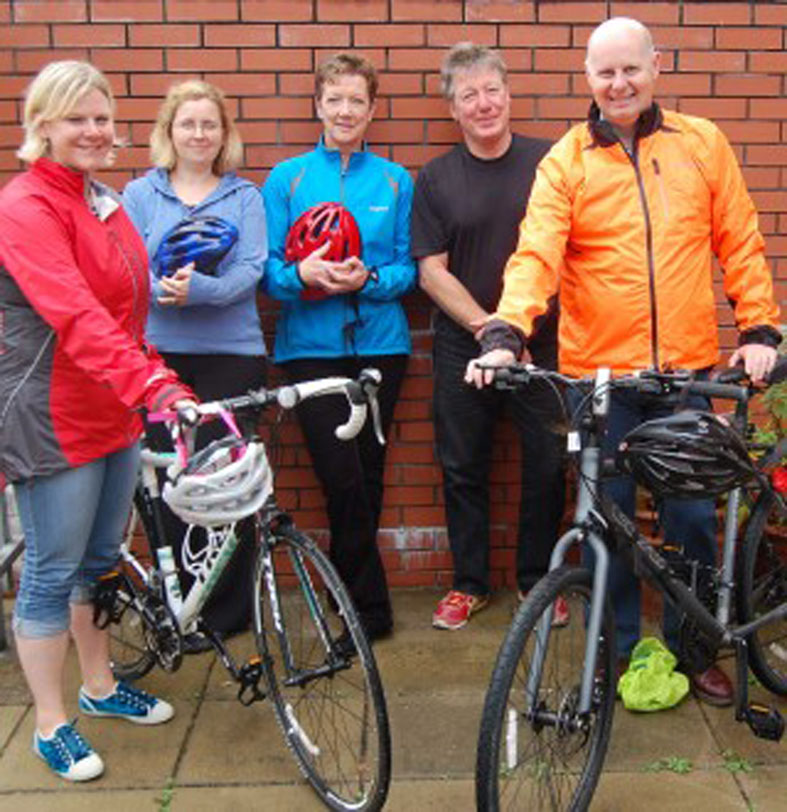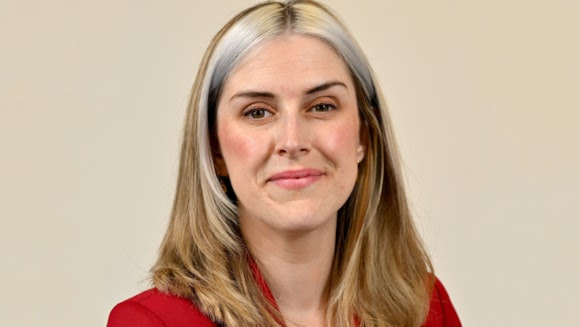Health
Welsh Government urged to take bold steps in active travel leadership

THE Active Travel Board, an independent body established to scrutinise the progress of active travel initiatives in Wales, has released its first annual report for 2023/24. The report commends the Welsh Government for its sustained political will and increased funding for active travel, now at £19 per head. However, it also highlights significant challenges that must be addressed to transform Wales into a true active travel nation.
Dr Dafydd Trystan, Chair of the Active Travel Board, praised the Welsh Government’s efforts, noting the international recognition of Wales’ pioneering work in active travel. Yet, he expressed concern over the slow pace of change, stating, “The long-term health benefits of increasing rates of active travel are clear to all. But we need to deliver better active travel outcomes in Wales to realise those long-term health benefits.”
The report paints a mixed picture. While investment in infrastructure has increased, the desired behaviour change remains elusive. Data shows that while 51% of adults walk weekly, this figure has dropped from 60% pre-pandemic. Cycling remains stagnant, with only 6% of adults cycling weekly. For children, 48% actively travel to primary school, but only 34% do so for secondary school.
A key issue identified is the inadequacy of data collation and research, which hampers the ability to track progress and identify successful interventions. The Board recommends a radical overhaul of these processes to better understand what works in promoting active travel.
One of the report’s most striking examples of success is Newport’s Spokesafe project, funded by the Welsh Government. This 24/7 secure storage facility has transformed travel habits, with over half its users stating they would not have gone into the city centre without it, and over three quarters cycling into town more frequently.
Similarly, the Sustrans Cymru E-Move project, also government-funded, has led to a 65% reduction in car trips for beneficiaries, showcasing the potential impact of well-targeted initiatives.
However, despite these pockets of success, Deputy Chair Rhiannon Letman-Wade voiced disappointment at the overall slow progress. She emphasised the need for better data, particularly in schools, to replicate successful models like that of Howardian Primary School, where 90% of pupils now travel actively. “It can be done,” she asserted, “but our data is not where it could be.”
The report offers nine recommendations aimed at accelerating progress. These include improving data collection, addressing capacity issues within local authorities, reimagining funding strategies, and creating a supportive environment for active travel in schools. Notably, the Board suggests that funding be concentrated in a few towns to drive significant behaviour change.
The Active Travel Board’s report is a call to action for the Welsh Government. With the right adjustments, Wales could set a global example in active travel. The Board is encouraging the public to share their views and suggest topics for future reports as Wales continues its journey towards becoming an active travel nation.
As the Welsh Government considers these recommendations, the future of active travel in Wales hangs in the balance, with the potential to lead the world in sustainable, health-promoting transport solutions.
Health
‘Parking fine or miss my appointment’ say patients pressure mounts at hospitals

From sleeping on chairs to parking fines, patients say everyday barriers are pushing the NHS to breaking point
PATIENTS across West Wales are describing a health service under such strain that some say they now expect to be penalised simply for trying to access care.
At Glangwili Hospital, stories of patients sleeping on chairs for days due to a lack of beds have been accompanied by growing frustration over issues that begin long before anyone reaches a ward — including parking, access, and the sheer difficulty of getting through the hospital doors.
One disabled patient said they had resigned themselves to receiving a £25 parking fine in order to attend hospital appointments.
“I now accept I will be fined,” they said. “Parking is impossible, but it’s that or miss my appointment. I am too disabled to park miles away and the disabled spaces are always full.”
Others have described spending days in A&E or side rooms, unable to lie down, while waiting for a bed to become available. One patient admitted on New Year’s Day with pneumonia said they slept in a chair for four nights without a pillow or blanket before being moved, only to later discover they also had flu and should have been isolated sooner.
Across social media and in correspondence with the Herald, patients and families repeatedly stress that frontline NHS staff are not to blame — instead pointing to a system that they say is buckling under years of structural strain.
Glangwili, the largest hospital managed by Hywel Dda University Health Board, serves Carmarthenshire and is home to the county’s only accident and emergency department following the closure of A&E at Prince Philip Hospital. That closure, along with reductions in services elsewhere, is frequently cited by patients as a turning point.
Several people said the loss of local A&E and cottage hospitals has forced more patients into already stretched units, increasing ambulance reliance and long-distance travel — particularly difficult in a largely rural region.
Further west, uncertainty over services at Withybush Hospital continues to fuel anxiety, especially given the scale of reinforced autoclaved aerated concrete (RAAC) identified across the site.
Hywel Dda has acknowledged that almost 90% of Withybush is affected by RAAC, while Glangwili itself is the oldest acute hospital in Wales. The health board says more than £50 million has been spent on the two hospitals in recent years, largely to address critical safety and infrastructure risks rather than expand capacity.
Patients, however, question where that money is felt on the ground.
Some have criticised NHS procurement and management structures, while others point to social care as the missing piece. Repeated comments highlight the lack of care packages and closed care homes, which many believe are leaving medically fit patients unable to be discharged — effectively blocking beds and creating bottlenecks throughout the system.
“There’s nowhere for people to go,” one reader said. “Until social care is sorted, nothing will change.”
Concerns have also been raised about staff morale, with some alleging bullying cultures and burnout contributing to recruitment and retention problems. Again, blame is consistently directed upward rather than at nurses, doctors or porters.
Behind it all looms the long-promised new ‘super hospital’ for Carmarthenshire — first discussed in 2006 and formally launched in 2018. Eight years on, construction has yet to begin, and public confidence in the project is fading.
While Hywel Dda and the Welsh Government insist improvements are under way — including additional funding to expand capacity at Glangwili and improvements to patient experience — many patients say their reality feels far removed from official assurances.
For those attending appointments, sleeping in chairs, or weighing up a parking fine against missing care, the crisis is no longer abstract.
“It’s not politics,” one patient said. “It’s whether you get treated — and how.”
Health
Consultation reveals lack of public trust in health board

EARLIER this week, Hywel Dda UHB published the results of a consultation into the future configuration of its clinical services.
It is widely accepted that the current provision of clinical services is unsustainable. The Board cannot recruit enough staff to fill vacancies, particularly in rural areas, despite the existing staff shortages there. Only Prince Philip Hospital in Llanelli, situated close to the medical faculty and research facilities in Swansea, experiences relatively little difficulty recruiting and retaining staff.
A QUESTION OF TRUST
Public reactions online to the publication of the results, particularly in Pembrokeshire, were plentiful and mostly negative. Those initial reactions were predictable, even where the report’s details had not been read. However, an examination of the consultation’s findings paints a troubling picture for the Board.
Many of the approximately 4,000 respondents to the consultation said they understood the practical difficulties of delivering healthcare across rural Wales with limited resources. However, many also said they did not expect the Health Board to act in good faith upon its findings. Using the definition of ‘many’ adopted by ORS, a slight majority of respondents to the consultation said, in terms, that they did not trust their local health board.
We asked the Health Board to respond to those findings.
The Board told us: “We hope that by giving the people and communities in Hywel Dda the chance to share their views, we can work together on planning for the future of health care that is safe, accessible, sustainable and kind. More than 4,000 people engaged with us by attending our events, held throughout the Hywel Dda area, neighbouring Health Boards, and online.
“At the Extraordinary Board meeting on the 18 and 19 February, the Board will be considering 48 options across the nine services, 22 of which are alternative options generated directly through staff, public and stakeholder feedback during the consultation process. This reflects our genuine commitment to listening to our communities. There are no preferred options.”

THE ROAD AHEAD
The consultation report included a large range of responses expressing serious concerns about access to services close to home. Respondents aired even stronger misgivings about the linked issue of transport for those attending hospital appointments. Simply put, options that proposed centralising services in one centre or another met with almost universal short shrift from the public.
The options proposed by the Board contained no hint of a transport assessment if key services were centralised, particularly from rural areas. Concerns about transport links, a bugbear for respondents from Pembrokeshire, were expressed by members of the public living in Ceredigion, in rural Carmarthenshire east and north of the M4 and A40.
Without a massive investment in patient transport services or a massively expanded public transport system, it is difficult to see how the Board could reasonably expect a patient with a debilitating condition to reach an appointment many miles away. Therefore, we asked the Board what transport it had commissioned to justify and underpin the options in the consultation.
The Board said: “We carried out Equality Impact Assessment (EqIA) and Quality Impact Assessment (QIA) during options development. Alongside this, there is a dedicated Patient and Travel Insights assessment to explore how changes could affect journeys and access to care. This includes analysis of travel times, transport patterns and the potential effects on different groups.
“We have carefully considered how proposed changes to healthcare services could impact travel and transport for patients, loved ones, and our staff. Some options may involve longer travel times for some people to ensure they can access better-quality care. We have worked with partners such as the Welsh Ambulance Service, the University NHS Trust, and the Adult Critical Care Transfer Service to ensure appropriate transport arrangements have been considered.
“We will continue to work with partners to understand how we can reduce the impact of any changes on travel and transport.”
A DIGITAL FUTURE?
This is at least the fourth consultation this reporter has reported on in the last eleven years. Each has suggested the future provision of healthcare services through technological solutions.
If patients must travel further for appointments, many of which will be clinically routine, remote medical appointments would go some way to addressing that issue. On the surface, it’s a win-win.
Progress has been slow. The technical demands of remote consultation and creaking IT infrastructure have delayed rollout. The risks attendant upon assessing a patient’s condition over a videolink remain undiminished. Moreover, a significant number of older patients either cannot or will not access services online. Rural broadband roll-out, which remains piecemeal, has not been the cure-all previously imagined.
We asked how the options accounted for the factors listed above.
The Board’s response stated that: “Digital is increasingly becoming the means by which we all interact with each other and with everything around us. However, we understand that some members of our Hywel Dda population cannot always access services online, or prefer not to, and we will support them in accessing healthcare in the way that is most convenient for them.”

FINDING (AND KEEPING) STAFF
The problems west Wales has in attracting and retaining healthcare staff are well known. They are chronic and, despite numerous initiatives, have not gone away. Rural areas are a hard sell to young professionals, especially those ambitious to specialise in cutting-edge practice areas. All principal research centres are based in or close to cities. In South Wales, that means Swansea, Cardiff, and Bristol. It follows that the more distant a post is from those centres, the less likely an early-career professional will apply for it.
Meanwhile, working conditions, shift patterns, and travel times to and from workplaces, often miles from home, mean that agency working (less secure, but better paid and more flexible) is an attractive alternative to direct employment. Despite Welsh Government diktats to cut the use of agency staff, healthcare delivery operates in the real world.
The Board told us: “Staff recruitment and retention are challenges across the NHS, especially in rural areas. We continue to recruit staff by offering them competitive remuneration packages and excellent opportunities to work, train and progress in our hospitals and health sites.
“An important motivation for the CSP programme was the expectation that more sustainable, higher-quality services would be more attractive to staff, helping with both retention and recruitment.
“Some options seek to recruit more substantive staff rather than temporary staff, which will be better for our clinical teams and improve patient care. Some options provide current staff with chances to work more closely together in teams and offer more training opportunities.”

PEMBROKESHIRE FIGHTS FOR WITHYBUSH
Opposition to the options proposed by the Health Board was predictably strongest when it came to removing services from local hospitals. In Ceredigion, a 16,000-signature petition opposed the removal or reduction of stroke services at Bronglais. In Llanelli, an option to close the Emergency Care Unit drew a negative reaction. In Llandovery, the loss of radiology services garnered a similarly trenchant response. In particular, a large majority of responses rejected proposals to introduce a treat-and-transfer system.
Against that background, it is hardly surprising that Pembrokeshire respondents stood firmly against any further reduction in services provided in the county, and particularly at Withybush. Having experienced the salami-slicing of services away from Haverfordwest, and in the face of repeatedly broken assurances regarding the return of services ‘temporarily’ removed, those reactions are unsurprising. Those feelings are not limited to the public. One staff member was directly quoted in the consultation report claiming that cuts to Withybush were baked into the options the Board presented.
We asked the Board to provide specific reassurance about maintaining current service provision at Withybush and other Pembrokeshire hospitals.
Whether the Board’s response addresses that question, the reader can decide.
“Withybush Hospital will have an important role to play in the health care of the region, and our long-term plan for our hospital sites has been set out in our A Healthier Mid and West Wales strategy. In the interim, our CSP consultation has included our thinking on the role of each of our acute sites. For example, we anticipate that Withybush Hospital will provide more planned care, and initial access to acute care would remain on site, with transfers to Glangwili Hospital for patients with the highest needs.”

PEMBROKESHIRE MSs RESPOND
Local Welsh Conservative Senedd Members Paul Davies MS and Samuel Kurtz MS have warned that any decision which undermines the future of A&E services at Withybush Hospital would be “wholly unacceptable”, ahead of a crucial Hywel Dda University Health Board meeting in February.
Paul Davies MS, joined by fellow Welsh Conservative Senedd Member Samuel Kurtz MS, said Withybush Hospital must be protected as a vital lifeline for Pembrokeshire, and that communities are deeply concerned about the potential consequences of the Health Board’s proposals.
Paul Davies MS said: “People in Pembrokeshire are deeply worried about what these proposals could mean for Withybush Hospital. Over many years, we have seen a gradual erosion of services, and communities are understandably anxious that this process will continue.
“Withybush Hospital is not a ‘nice to have’ — it is a vital lifeline for a large, rural population. Any changes must strengthen services in Pembrokeshire, not weaken them. I will not support decisions that place patients at greater risk or force them to travel unreasonable distances for essential care.”

Samuel Kurtz MS added, “People in Pembrokeshire have heard this story before. Time and again, we are told services are fragile, and the result is that Withybush loses out.
“The loss of SCBU, consultant-led maternity and children’s A&E is still deeply felt locally. Removing one service often makes others unviable, and that is exactly what people are worried about now.
“Any decision that threatens the long-term viability of A&E at Withybush Hospital is a red line. It would be wholly unacceptable and would be met with fierce opposition from the community.”
Mr Kurtz also stressed that rurality, transport challenges and ambulance pressures must be central to decision-making, not treated as secondary considerations.
“Pembrokeshire is a rural county. Asking patients to travel further for emergency or urgent care is not a theoretical issue — it affects safety, outcomes, families and staff.
He continued: “There is also deep frustration that these decisions continue to be made in the shadow of the so-called ‘super hospital’ elsewhere in west Wales, which has never come to fruition. Pembrokeshire cannot be left with a slow erosion of services while waiting for something that may not materialise for a decade or more.”
Both Senedd members have written to Hywel Dda University Health Board and the Welsh Government ahead of the February meeting.
Paul Davies MS concluded: “We will be watching the outcome of this meeting very closely. Withybush Hospital is vital to Pembrokeshire. It must be properly supported, not hollowed out.”
Health
New women-led health hubs roll out across Wales

Menopause, contraception and menstrual health services brought closer to home
NEW women’s health hubs designed by women for women have begun rolling out across Wales this week, aiming to improve access to menopause, contraception and menstrual health services in communities.
By March, every health board in Wales will have at least one women’s health hub in place. While the format will vary locally — with some operating across multiple sites and others accessed partly online — all will follow a shared, holistic approach to women’s healthcare.
The hubs are intended to make it easier for women to access support through extended clinics, education sessions, online guidance and clear signposting. Some services will be referral-based, while others will be available through open access.
On Thursday (Jan 29), Sarah Murphy, the Welsh Government minister with responsibility for women’s health, visited the first pilot hub run by Hywel Dda University Health Board at Padarn Surgery in Aberystwyth, where she met patients and clinicians.
The Minister said the hubs would bring care closer to home and address long-standing inequalities in women’s healthcare.
She said: “Women’s health hubs will make it easier for women in Wales to get care when they need it and bring that care closer to home.
“The two very different provisions I will have visited in Swansea and Aberystwyth over the past week reflect the wide variety of ways health boards are meeting the brief of tackling health inequalities and making sure women’s symptoms are not dismissed.
“As the pathfinder hubs and new services linked to them are rolled out, we’ll be listening to women’s feedback and adapting to make sure we are building a health service which meets the needs of women and girls, now and for generations to come.”
The Aberystwyth hub is GP- and nurse-led, offering menopause, menstrual health and contraception services alongside established pelvic physiotherapy and bladder and bowel nurse-led clinics. In time, women across Carmarthenshire, Ceredigion and Pembrokeshire will also be able to access a virtual multidisciplinary platform linked to the health board’s hubs.
Earlier this month, the Minister attended an open pelvic floor physiotherapy session for women in Swansea, part of a new community-based service being developed through the virtual hub model run by Swansea Bay UHB.
Mr Alan Treharne, Consultant Gynaecologist at Hywel Dda University Health Board and Clinical Director for the Ceredigion Community and Integrated Medicine Group, said the pilot scheme was already showing promise.
He said: “The pilot at Padarn Surgery is working well and we are looking forward to developing seven women’s health hubs based around our seven GP clusters across the Hywel Dda area.
“These hubs bring together new ideas and practical care, helping women living in mid and west Wales to get the support they need as close to home as possible.
“This is a great opportunity for us to keep testing new ways of delivering care, supported by the Bevan Commission through its exemplar and fellowship projects. As clinicians, we believe this model allows us to deliver care faster, more holistically and to a high standard.
“We are pleased that Welsh Government has provided funding to develop the hubs, enabling us to support women through menstrual health, contraception and menopause within their own communities.”
Dr Helen Munro, Clinical Lead for the National Strategic Network for Women’s Health, said the hubs marked a significant change in how women’s healthcare is delivered in Wales.
She said: “These new women’s health hubs represent a meaningful shift in how care is delivered. By bringing menopause, menstrual health, contraception and pelvic health services together in one accessible, community-based model, we are removing barriers that have too often prevented women from getting timely support.
“What matters most is that these hubs have been shaped by women’s experiences and designed around the realities of their lives. As services expand across every health board, there is a real opportunity to listen, respond and build a system that treats women’s health with the priority and respect it deserves.”
The hubs form part of the Women’s Health Plan for Wales, published last year by the National Strategic Clinical Network for Women’s Health within NHS Wales Performance and Improvement.
The plan sets out more than 60 actions across eight priority areas to close the gender health gap, based on feedback from around 4,000 women across Wales. Each health board has received an additional £300,000 this financial year to support the development of the pathfinder hubs, which will be formally evaluated later this year.
-

 Health3 days ago
Health3 days agoConsultation reveals lack of public trust in health board
-

 News4 days ago
News4 days agoCaldey still unsafe, survivors warn — despite Abbey’s reform claims
-

 Community4 days ago
Community4 days agoPembrokeshire students speak at national Holocaust Memorial Day event
-

 News6 days ago
News6 days agoWales warned against single police force as Lib Dems cite Scotland ‘lesson’
-

 Crime6 days ago
Crime6 days agoMilford Haven man appears in court charged with burglary and GBH
-

 Business7 days ago
Business7 days agoFormer Halifax in Haverfordwest could soon become new high street nail bar
-

 Local Government6 days ago
Local Government6 days agoTribunal over former Neyland councillor’s conduct adjourned
-

 Business6 days ago
Business6 days agoDuke of Edinburgh Inn in Newgale on the market for £325,000


























